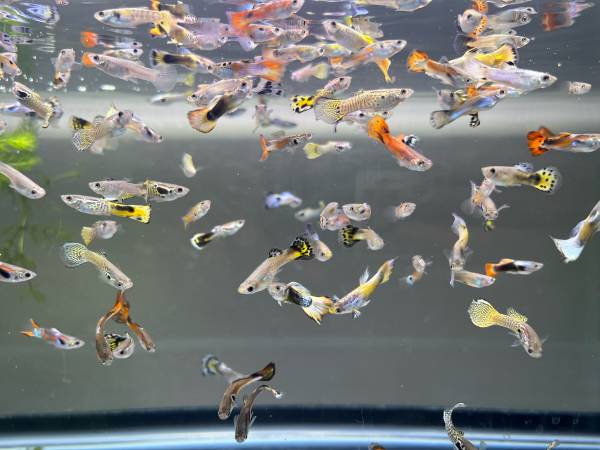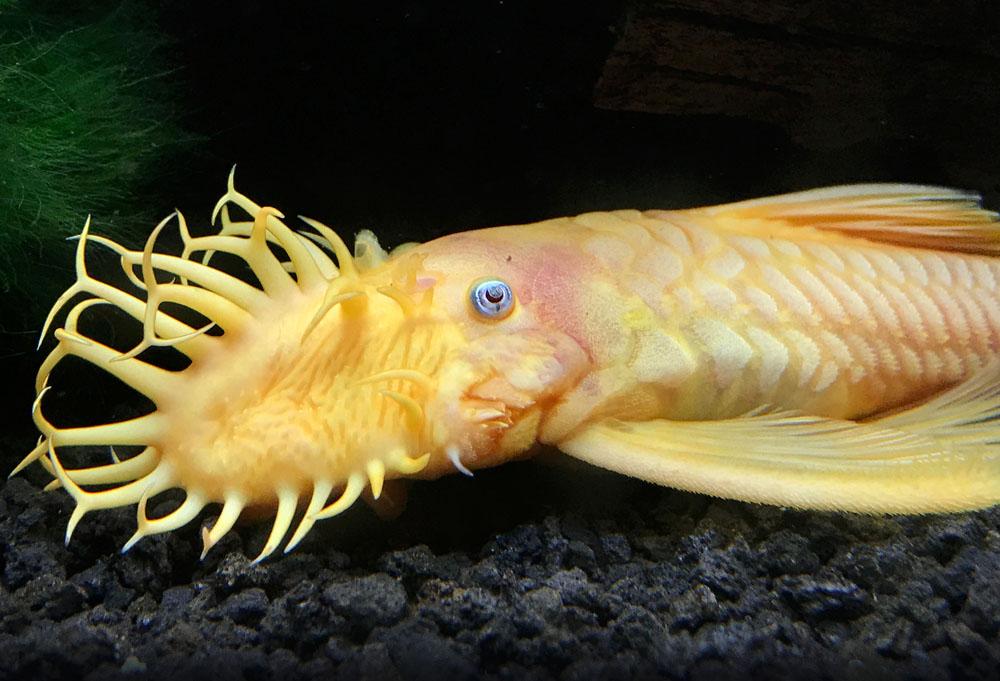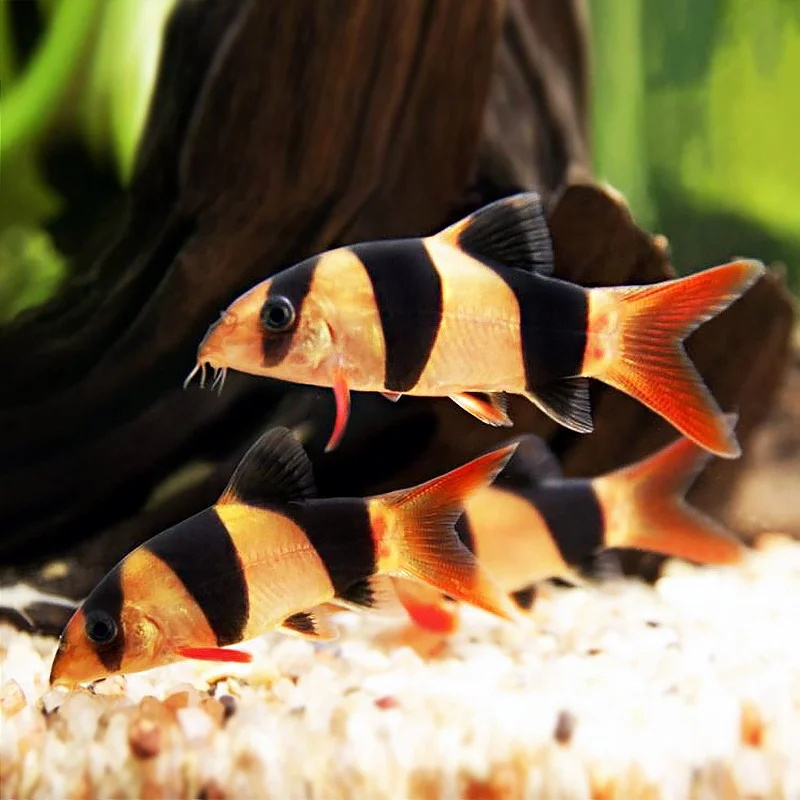For many reasons, rosy barbs are one of the most popular and readily available fish for aquarium hobbyists. They are an active fish with a peaceful temperament and bright color. The rosy barb is one of the larger members of the barb species, and it can grow up to six inches in the wild. This fish enjoys company, and if its school is large enough, it will not bother other fish in the aquarium. Rosy barbs make great additions to an aquarium and also do well in ponds in warm weather.
Origin and Distribution
Rosy barbs originate in northern India, in the states of West Bengal and Assam. Feral populations are also found in Singapore, Australia, Mexico, Puerto Rico, and Colombia. Rosy barbs natively live in lakes and fast-flowing water in subtropical climates.
Males have a brighter red coloration as opposed to the females that look more gold or silver than red. Both genders have black markings on the fins and sides. The rosy barb has a torpedo-shaped body and a forked tail. It has only one dorsal fin. Like other cyprinid fish, rosy barbs lack an adipose fin.
Tankmates
Ideally, house no fewer than five rosy barbs in an aquarium as they are a schooling fish that will feel stressed in solitude. Rosy barbs also have a tendency for aggressive or “fin-nipping” behavior; keeping them in schools of five or more will help reduce that tendency. Because of their fin-nipping nature, avoid housing them with slower-moving, long-finned fish.
Rosy barbs make a great community fish. They socialize well with other nonaggressive fish of a similar size that enjoy cooler water. Swordtails, gouramis, angelfish, knifefish, ropefish, paradise fish, danios, tetras, many American cichlids, and other barbs make suitable tankmates. Aquarium hobbyists have had success using rosy barbs as a dither fish in cichlid tanks; their brightly colored presence is evidence of a lack of predators nearby which attracts shy cichlids out of their hiding spots. Rosy barbs are agile enough to outswim most cichlids of the same size.
Rosy Barb Habitat and Care
Because they are one of the hardiest barbs, they are quite easy to care for in captivity. Always keep a secure lid on your aquarium, as rosy barbs are very good jumpers.
As long as you avoid extreme water conditions, rosy barbs can adapt to a wide range of conditions. Known to tolerate higher levels of nitrate, they are a good candidate for a new tank; they are more likely to survive the initial nitrogen cycling.
Although a 20-gallon aquarium will suffice for a school of rosy barbs, a 30-gallon tank or larger is better. Live plants are ideal, but avoid getting soft-leaved plants. Rosy barbs will nibble on plant matter in the tank, and soft-leaved plants may not survive. Java moss has been used successfully with rosy barbs, offering them shade and shelter.
They tolerate a lower temperature range than most tropical fish, from 64 to 72 F. Because of this, they can be kept as pond fish as well. Move them inside during the winter, especially in areas that are prone to cold weather.
Rosy Barb Diet and Feeding
Rosy barbs are omnivorous and opportunistic eaters. The rosy barb likes a variety of foods including vegetables as well as meaty foods. Feed them plant matter, insects, worms, crustaceans, flakes, pellets, and frozen foods. They will eat live foods as long as they are small enough, such as insects, worms or crustaceans, including brine shrimp and bloodworms.
In order to provide some nice variety, boil some zucchini or peas for them as a treat. Because of their tendency to graze on vegetation, rosy barbs eat away at hair algae that grow in aquariums. Rosy barbs are enthusiastic eaters, so be careful to not overfeed.




Reviews
There are no reviews yet.